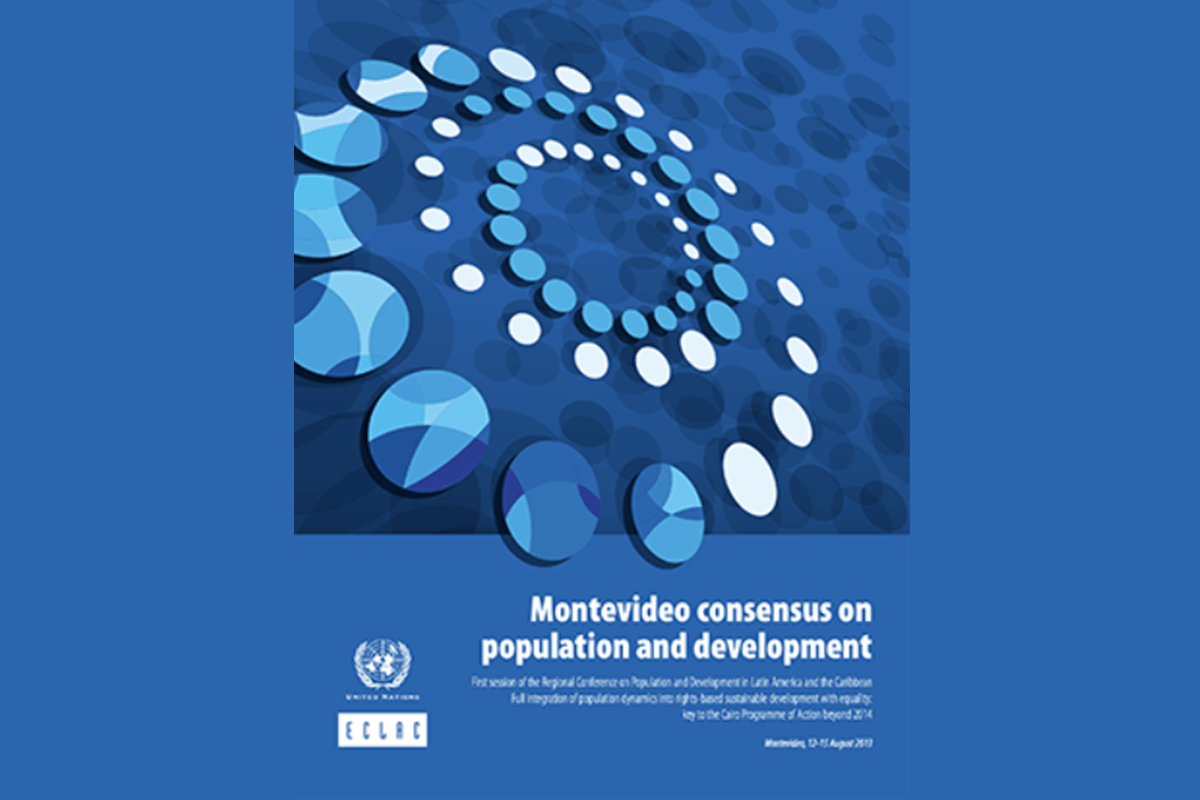
The Montevideo Consensus is the most advanced inter-governmental agreement on population and development in the world. It incorporates a series of measures aimed at guaranteeing human rights, especially sexual and reproductive rights, and it celebrates its 10th year anniversary on August 15th this year.
Some Background:
In 2012, through ECLAC resolution 670, it was decided that the ECLAC Ad Hoc Committee on Population and Development would be renamed the Regional Conference on Population and Development in Latin America and the Caribbean, with the aim of following up on issues related to population and development, international migration, indigenous peoples, Afro-descendant population, and ageing.
The Montevideo Consensus was approved by Latin American and Caribbean States that met at the First Regional Conference on Population and Development (CRPD in Spanish) held in Montevideo, Uruguay. The Consensus contains 11 priority measures, 10 of which are aimed at guaranteeing the full exercise of sexual and reproductive rights for all populations, especially the most vulnerable, and one of which is specifically aimed at guaranteeing universal access to sexual and reproductive health services.
At the second CRPD, held in Mexico in 2015, the Operational Guide for the implementation and monitoring of the Montevideo Consensus was adopted as a voluntary technical instrument to support countries in implementing the priority actions of the Consensus in the form of specific indicators. This Guide takes into account the relationship between the Consensus and other instruments, such as the Action of the International Conference on Population and Development Programme beyond 2014, the 2030 Agenda for Sustainable Development, and the Regional Conference on Women in Latin America and the Caribbean. The latter is a subsidiary body of the Economic Commission for Latin America and the Caribbean (ECLAC) and is the main regional inter-governmental forum on women’s rights and gender equality within the United Nations system. It is organized by ECLAC as Secretariat of the Conference and, since 2020, with the support of UN-Women.
The Montevideo Consensus is therefore considered to be the regional expression of the follow-up to the Cairo Programme of Action post-2014, and the review process of the 2030 Agenda.
Its importance lies in the fact that, as an inter-governmental agreement, the signatory States have committed themselves to comply with the Montevideo Consensus. They therefore have the obligation to apply the necessary measures — design and implement legislation, public policies, regulations or others — to guarantee what has been agreed.
In 2023, the Montevideo Consensus turns 10 years old, which will be commemorated in the framework of an extraordinary meeting of the CRPD Board of Directors, currently chaired by the Bolivian government, which has confirmed that it will be held on Bolivian territory. As civil society organizations that promote and monitor the implementation of the Consensus agreements, we look forward to the Bolivian government opening its doors to us so that we can have spaces for dialogue and synergies that allow us to advance in the fulfilment of the commitments of this inter-governmental agreement to guarantee human rights, including the sexual and reproductive rights of all the people in the Plurinational State of Bolivia.
SOURCE: by Andrea Terceros Hans, Project Manager of Sexual and Reproductive Justice, Social and Advocacy Area, MSI Reproductive Choices, Bolivia
SEE ALSO: Regional Conference on Women in Latin America and the Caribbean. Available in Spanish, English and Portuguese.



